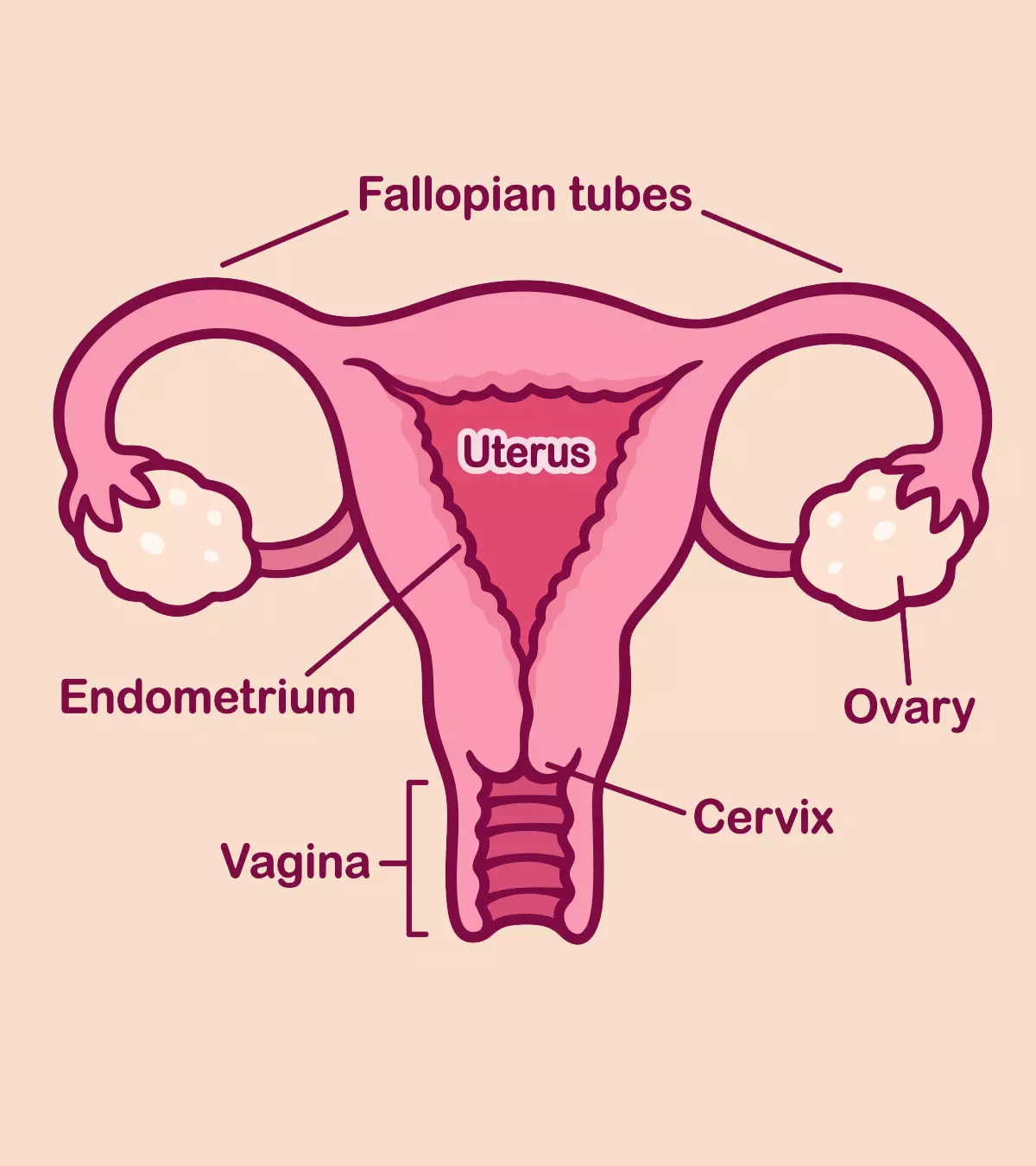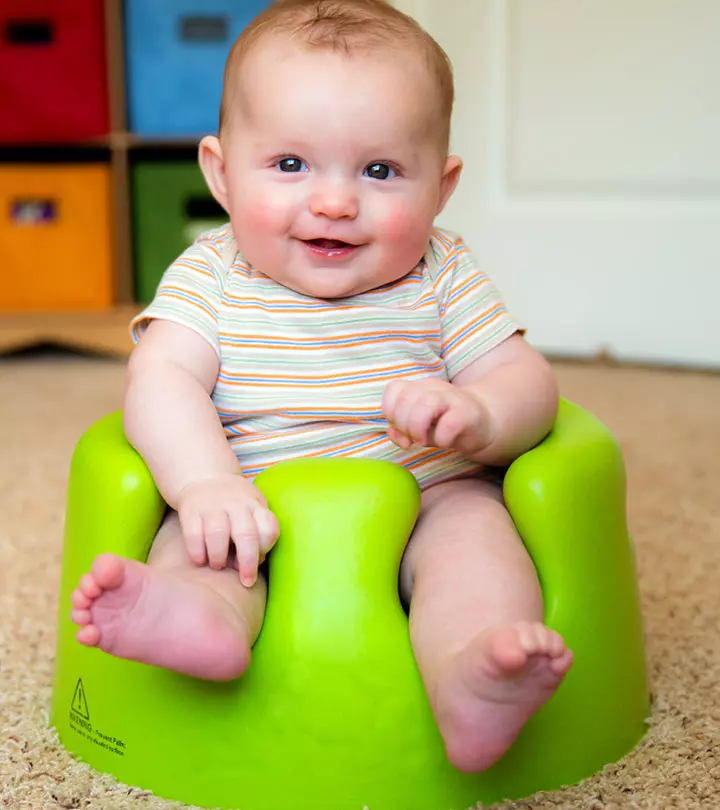
Image: Shutterstock
Indulging in regular and safe exercises in first trimester could increase the chances of vaginal delivery (1). It is vital not only for physical well-being but also to help cope with mental stress during pregnancy. Exercising helps maintain healthy body weight, improves sleep, and regulates mood.
First trimester exercises can also help reduce the risk of fetal complications such as premature birth and congenital type-II diabetes. Read this post to know about some safe first trimester exercises, associated health benefits, and safety tips to follow while exercising in pregnancy.
Key Pointers
- Healthy pregnant women may safely carry out exercises during the first trimester under the guidance of Ob/Gyn.
- Exercising may help reduce the risks of pregnancy complications such as preeclampsia, delivery problems, and gestational diabetes.
- Walking, swimming, and cycling are safe exercises for the first trimester.
- Ensure to follow the safety and preventive measures to avoid any complications.
Is It Safe To Exercise In The First Trimester?

Image: Shutterstock
It is healthy and safe to practice exercises in the first trimester and maintain your fitness levels unless you have certain health complications and your doctor has set restrictions (2).
Practicing exercises during the first trimester might help increase the core strength of muscles. If you are already engaged in physical activity before getting pregnant, it is okay to continue exercise in pregnancy (3).
The American College of Obstetrics and Gynecology (ACOG) guidelines do not restrict pregnant women from exercising up to any maximum heart rate (4). You may choose your comfort level and workout moderately for at least 150 minutes throughout the week for substantial health benefits (5).
According to the World Health Organization (WHO), performing exercise has no adverse effects on birthweight and stillbirth (5).
What Are The Benefits Of Exercise During Pregnancy?
WHO recommends performing exercise during pregnancy to reduce the risk of (5):
- Pre-eclampsia
- Gestational hypertension or high blood pressure disorders
- Gestational diabetes mellitus
- Lung disease
- Gestational weight gain
- Delivery complications
- Postpartum depression
- Newborn complications
When To Start Exercising During Pregnancy?
According to the World Health Organization (WHO), engaging in gentle workouts and physical activity is preferable to leading a sedentary lifestyle (4). Any exercise is beneficial, and including it right from the beginning of the first trimester will lead to a healthy delivery.
It might not be easy for beginners to start the exercise, but having your partner or a friend would help you keep going. However, if you were already involved in vigorous activity or physically active, you may continue it during pregnancy and postpartum. You may consult your physician or healthcare provider to make an exercise plan for you.
 Quick tip
Quick tipWhich Exercises Are Safe In The First Trimester?
Some of the safe and beneficial maternity exercises you can do in the first trimester of pregnancy are (1) (6) (7):
- Walking and running: Cardiovascular exercises such as running and walking during pregnancy are easy to do and can help improve your cardiovascular health. Practicing cardio sessions will allow you to gain stamina and endurance. Avoid sprinting as it may unnecessarily make you gasp.
Selma, a blogger, mother, and fitness enthusiast, reiterates the importance of listening to one’s body while walking or running when they are pregnant, “If you scheduled a tempo run but can hardly get out of bed in the morning, adjust your plan. If you are feeling pain or discomfort while running, stop immediately. If something doesn’t feel right during your workout, it probably isn’t. Your body will give you signals to slow down when you go too fast or even stop when you are harming yourself or the embryo. I noticed from the very beginning that I couldn’t run as fast anymore as I was used to, and I found it at times rather challenging to accept this. However, acceptance is the only solution, and the sooner you do, the less frustrated you will feel. Focus this period on other things (I’m sure there are enough other things that need to be done, such as reading about pregnancy and having a baby, preparing a room for the baby, prenatal yoga, etc.) and tell yourself you will pick up your runs with renewed energy once you start feeling more energetic. There are numerous other ways to stay fit, so do some walks, strength training, biking, or swimming (i).”

Image: Shutterstock
- Swimming and water aerobics: Swimming combines cardiovascular benefits and also trains and shapes your muscles.
- Dancing: It is relatively safe as long as you dance gently in the first trimester, and it helps get rid of your stress and aids blood circulation.

Image: Shutterstock
- Cycling: If you are comfortable with cycling, it is good to take some fresh air in the morning or go mountain biking. A stationary bike is ideal as it helps prevent falling over.
- Yoga and pranayama: Practicing prenatal first-trimester yoga can help tone your muscles and rejuvenate your body. Pranayama, a breathing exercise, can help you increase your ventilatory functions.

Image: Shutterstock
- Pilates: Practicing pilates pregnancy exercises in the first trimester can help improve your muscle strength, posture, and flexibility. You may avoid stretches such as deep back-bend, as it is strenuous and uncomfortable.
- Kegel exercises: Engaging in pelvic floor exercises, commonly known as Kegel exercises, strengthens the muscles and tissues in the lower part of your body. These muscles extend from the front, near the pubic bone, to the back, alongside the spine supporting the uterus, bladder, intestines, and bowels. Strengthening these muscles is believed to be advantageous for vaginal muscles. Also, performing these pregnancy exercises throughout your gestation period, especially in your ninth month, can be extra beneficial as they might contribute to increased pelvic floor relaxation, facilitating childbirth and potentially reducing the likelihood of requiring an episiotomy (8).
When Should You Avoid Exercise?
According to the WHO guidelines, you should avoid any physical activity if (5):
- There is an excessive heat outside
- You have traveled to high altitudes, as it may limit oxygenation
- There is a risk of falling from an elevated level
- There is a risk of physical contact with people around.
 Point to consider
Point to considerHow To Exercise Safely In The First Trimester?
Some safety measures to follow while exercising in the first trimester are (5):
- Drink water at regular intervals and stay hydrated before, during, and after physical activity.

Image: Shutterstock
- Avoid supine position after the first trimester.
- While participating in athletic competitions, seek a doctor’s advice if it is safe for you.
- When trying a new exercise, consult your healthcare provider or your midwife for any recommendations. They may guide you through the correct postures and let you know the risks involved.
- Avoid adopting postures that involve stretching the stomach or lying on your back.
- Inform your trainer about your pregnancy while joining an exercise class. It will help them streamline the activities that suit you best.
 Be watchful
Be watchfulFrequently Asked Questions
1. Can I do squats in the first trimester?
Squatting is a beneficial and safe antenatal exercise to do during the first trimester (9). If you are already practicing squats, you can continue during this period. However, if you are doing them for the first time in pregnancy, then do them gently and progressively with lighter loads at the beginning. Since squats are a little difficult to master, doing them progressively from the first trimester will help strengthen your thighs and pelvic floor muscles (10).
2. Can exercising cause miscarriage?
There is no scientific evidence establishing a connection between physical activity and the risk of miscarriage or any other fetal complications (11). However, recent evidence suggests practicing regular physical activity can help improve maternal health and reduce fetal complications.
3. What exercises should I avoid in the first trimester?
Exercising during pregnancy helps you stay physically healthy and reduces the risks of complications. However, do not overstress yourself with heavy exercises or include those carrying risks to your stomach and abdomen as they might affect the fetus. Examples of activities you should avoid during the first trimester are scuba diving, skiing, hot yoga, playing basketball or volleyball, and riding a horse (6).
Exercises in the first trimester are essential for a healthy pregnancy. A regular workout can improve maternal and fetal well-being. This may also help reduce the risk of various pregnancy complications and often increases the chance of vaginal delivery. It is easier to work out in the first trimester than in later trimesters. You may continue the same intensity of exercises if you are already exercising with the doctor’s approval. If you are new to exercising, you may start from basic levels and gradually increase the intensity. Discuss the type of exercises and duration with your gynecologists and make more informed and personalized workout plans for pregnancy.
Infographic: Precautions To Take While Exercising In The First Trimester
Regular physical activity is recommended to ensure a safe and healthy pregnancy. However, taking certain precautions, as listed in the infographic below, is essential to avoid any potential risk to the baby and mother. Also, it is advised to stick to light to moderate exercises throughout pregnancy.

Illustration: Momjunction Design Team
Learn simple and safe exercises to keep you and your baby healthy during pregnancy. Also, get tips on how to stay active and fit during this special time from this video.
Personal Experience: Source
MomJunction articles include first-hand experiences to provide you with better insights through real-life narratives. Here are the sources of personal accounts referenced in this article.
i. Running while pregnant – first trimester.https://ashufik.wordpress.com/2014/12/13/running-while-pregnant-first-trimester/
References
- 7 Great Exercises for Your First Trimester of Pregnancy.
https://www.tricitymed.org/2018/09/7-great-exercises-for-your-first-trimester-of-pregnancy/ - Exercise in pregnancy.
https://www.nhs.uk/pregnancy/keeping-well/exercise/ - Exercise During Pregnancy.
https://americanpregnancy.org/healthy-pregnancy/is-it-safe/exercise-during-pregnancy/ - Recommendations Regarding Exercise During Pregnancy Made by Private/Small Group Practice Obstetricians in the USA.
https://www.ncbi.nlm.nih.gov/pmc/articles/PMC3842146/ - WHO GUIDELINES ON PHYSICAL ACTIVITY AND SEDENTARY BEHAVIOUR.
https://iris.who.int/bitstream/handle/10665/337001/9789240014886-eng.pdf - Exercise during pregnancy.
https://www.marchofdimes.org/find-support/topics/pregnancy/exercise-during-pregnancy - Health Impacts of Yoga and Pranayama: A State-of-the-Art Review.
https://www.ncbi.nlm.nih.gov/pmc/articles/PMC3415184/ - Kegel Exercises.
https://americanpregnancy.org/healthy-pregnancy/labor-and-birth/kegel-exercises/ - Time to Exercise: Half Squat.
https://www.babybonus.msf.gov.sg/wp-content/parentingresources/documents/Time_to_Exercise_Half_Squat_Guides.pdf - Squatting in the third trimester.
https://mybabymanual.co.uk/pregnancy/trimester-3/week-29/squat-exercise-for-the-third-trimester/ - Physical Activity and Exercise During Pregnancy and the Postpartum Period.
https://www.acog.org/clinical/clinical-guidance/committee-opinion/articles/2020/04/physical-activity-and-exercise-during-pregnancy-and-the-postpartum-period
Community Experiences
Join the conversation and become a part of our nurturing community! Share your stories, experiences, and insights to connect with fellow parents.
Read full bio of Dr. Ahmar Shah
Read full bio of Anshuman Mohapatra
Read full bio of Rebecca Malachi
Read full bio of Dr. Joyani Das


















